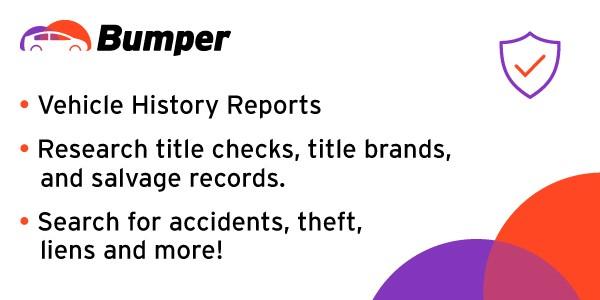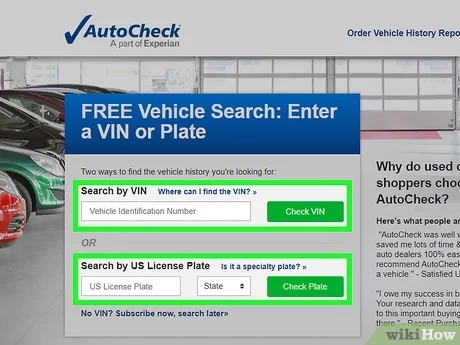Research a vehicle’s history, obtain the Vehicle Identification Number (VIN), and use a reputable vehicle history report service. This helps uncover any past accidents, title issues, or odometer discrepancies.
Researching a vehicle’s history is crucial before making a purchase. It ensures you avoid potential pitfalls like hidden damages or fraudulent activities. Start by obtaining the Vehicle Identification Number (VIN) from the seller. The VIN is a unique code that identifies every vehicle.
Use this code to access detailed reports from reliable services like Carfax or AutoCheck. These reports provide essential information such as previous ownership, accident history, and any reported title issues. Checking a vehicle’s history helps make informed decisions, ensuring you invest in a reliable and safe vehicle.
Importance Of Vehicle History
Knowing a vehicle’s history is crucial before buying it. The history reveals important details. It helps you make a smart choice. Let’s explore why it’s so important.
Safety Concerns
A car’s history can show past accidents. This info helps you judge if the car is safe. You can check if the car had major repairs. Knowing this can prevent future safety issues.
- Past accidents
- Major repairs
- Recalls
Some cars may have been recalled. Recalled cars can be unsafe. Checking the history lets you know about recalls. This helps ensure your safety.
Financial Implications
A car’s history affects its value. A car with a clean history is worth more. Cars with accidents or damage lose value. Knowing the history helps you pay the right price.
Hidden issues can cost you later. Unseen problems may need expensive repairs. A full history report can reveal hidden issues. This helps avoid unexpected costs.
| History Aspect | Financial Impact |
|---|---|
| Accidents | Lower resale value |
| Repairs | Potential high costs |
| Recalls | Possible safety fixes needed |

Credit: www.erdc.usace.army.mil
Gathering Basic Information
Before diving deep into a vehicle’s history, start with the basics. Knowing the essential details helps you make informed decisions. Here are two critical pieces of information you need: the VIN number and the license plate.
Vin Number
The VIN number is like a car’s fingerprint. It is a unique code for every vehicle. This 17-character identifier includes numbers and letters. You can find the VIN in several places:
- On the dashboard, near the windshield
- Inside the driver’s side door
- In the engine bay
- On the vehicle’s registration documents
Use the VIN to look up the car’s history. Many online services provide detailed reports. They include accident history, ownership records, and more. Be cautious if the VIN seems altered. It could be a sign of a stolen vehicle.
License Plate
The license plate also holds valuable information. Each state has its database. You can request a vehicle history report using the license plate number. This report may include:
- Registration details
- Inspection records
- Emission test results
- Possible liens on the vehicle
Ensure the license plate matches the VIN number. Mismatched details can signal potential issues. Always double-check to avoid buying a problematic car.
| Information | Where to Find |
|---|---|
| VIN Number | Dashboard, Driver’s door, Engine bay, Registration documents |
| License Plate | Vehicle’s exterior, Registration documents |
Having both the VIN and license plate helps ensure accuracy. Always use these details to verify a vehicle’s history.

Credit: vehiclehistory.bja.ojp.gov
Utilizing Online Resources
Researching a vehicle’s history is crucial before making a purchase. Online resources provide detailed information on a car’s past. This section explains how to use two major online tools: Carfax Reports and AutoCheck Services.
Carfax Reports
Carfax Reports are a reliable source of vehicle history. They offer comprehensive details about a car’s past. Here is what you can find in a Carfax report:
- Accident history
- Title information
- Service records
- Odometer readings
- Ownership history
To get a Carfax report, you need the vehicle’s VIN (Vehicle Identification Number). The VIN is usually found on the car’s dashboard or door frame. Visit the Carfax website, enter the VIN, and purchase the report. Carfax reports are detailed and trusted by many buyers and sellers.
Autocheck Services
AutoCheck Services is another popular tool for vehicle history. It provides similar information to Carfax but includes additional features. Here is what you can find in an AutoCheck report:
- Accident history
- Title information
- Service records
- Odometer readings
- Ownership History
- AutoCheck Score
The AutoCheck Score is unique to AutoCheck. It rates the vehicle’s history on a scale of 1 to 100. A higher score indicates a better history. To get an AutoCheck report, you also need the vehicle’s VIN. Enter the VIN on the AutoCheck website and purchase the report. AutoCheck reports are detailed and include the unique AutoCheck Score, making them a valuable resource.
Checking For Recalls
Before purchasing a used vehicle, it is crucial to check for recalls. Recalls can indicate potential safety issues that need addressing. By checking for recalls, you ensure the vehicle is safe and compliant with all regulations.
Manufacturer Websites
Manufacturer websites are reliable sources for recall information. Follow these steps to check for recalls:
- Visit the official website of the vehicle’s manufacturer.
- Navigate to the recall section, usually found under customer service.
- Enter the Vehicle Identification Number (VIN) to search for recalls specific to your vehicle.
Manufacturer websites provide the most up-to-date recall data. They also offer guidance on how to resolve any issues.
NHTSA Database
The National Highway Traffic Safety Administration (NHTSA) database is another excellent resource. Follow these steps to use the NHTSA database:
- Go to the NHTSA recalls website.
- Enter the VIN in the search bar.
- Review the list of recalls and safety issues for your vehicle.
The NHTSA database provides comprehensive recall information. It covers all makes and models available in the United States.
| Source | Steps | Benefits |
|---|---|---|
| Manufacturer Websites |
|
Most up-to-date data |
| NHTSA Database |
|
Comprehensive coverage |
Investigating Ownership History
The ownership history of a vehicle is crucial. It can reveal how many people have owned the car. It also shows how well the car was maintained. This information helps you make an informed decision. Let’s dive into the essential aspects of investigating ownership history.
Previous Owners
Find out the number of previous owners. This can indicate the car’s reliability. A car with many owners might have issues. Check the car’s history report for this information. It will list all the previous owners.
- More owners may mean more problems.
- Fewer owners often indicate better care.
Title Transfers
Review the title transfers. This shows every time the car changed hands. Frequent title transfers can be a red flag. It might suggest the car was sold due to problems.
| Date | Owner | Reason for Transfer |
|---|---|---|
| 01/01/2018 | John Doe | Original Purchase |
| 01/01/2020 | Jane Smith | Sold to New Owner |
Check if the title is clean. A clean title means no major issues. Avoid cars with salvage or rebuilt titles. These cars have had serious damage.
- Obtain the car’s VIN (Vehicle Identification Number).
- Use online services to check title history.
- Verify all information matches the car’s details.
Inspecting Accident Reports
Researching a vehicle’s history is crucial before making a purchase. One key aspect is inspecting accident reports. These reports reveal past damages and repairs. They help you understand the vehicle’s condition and potential issues.
Damage Severity
The damage severity section in accident reports is essential. It shows how badly the vehicle was damaged in an accident. This information helps you assess if the car is safe to drive.
Here are some common damage severity levels:
- Minor Damage: Usually cosmetic issues like scratches or small dents.
- Moderate Damage: Affects parts like bumpers or lights.
- Severe Damage: Significant impact on the frame or engine.
Understanding the severity helps you decide if the car is worth buying. Cars with severe damage may have long-term issues.
Repair Quality
The repair quality section shows how well the vehicle was fixed after an accident. High-quality repairs ensure the car is safe and reliable.
Key factors to consider include:
| Factor | Description |
|---|---|
| Parts Used | Were original or generic parts used? |
| Repair Shop | Was the repair done by a certified shop? |
| Inspection Reports | Are there follow-up inspection reports available? |
High-quality repairs often use original parts and certified shops. These factors ensure the vehicle is restored to its best condition.
Reviewing Maintenance Records
Understanding a vehicle’s maintenance history is crucial. It helps predict the car’s future performance. Reviewing maintenance records ensures you are aware of past services and repairs. This can save you from unexpected expenses.
Service Logs
Service logs provide a detailed account of all services performed. These logs include:
- Oil changes
- Brake inspections
- Tire rotations
Check if the service logs are up-to-date. A well-maintained car will have consistent entries. Look for patterns or frequent repairs. This can indicate potential recurring issues.
Scheduled Maintenance
Scheduled maintenance includes regular check-ups recommended by the manufacturer. These are critical to keep the car running smoothly.
| Maintenance Task | Frequency |
|---|---|
| Oil change | Every 5,000 miles |
| Tire rotation | Every 7,500 miles |
| Brake inspection | Annually |
Verify if the vehicle followed the manufacturer’s schedule. Skipped maintenance can lead to bigger problems. A car that adheres to the schedule is usually in better condition.
Reviewing maintenance records gives you peace of mind. You’ll know the vehicle’s past and its potential future needs. This way, you make an informed decision when buying a car.

Credit: vehiclehistory.bja.ojp.gov
Consulting Professional Help
Researching a vehicle’s history is crucial before purchasing. Consulting professionals can provide expert insights and ensure you make a well-informed decision. This section covers two key aspects: Mechanic Inspection and Certified Appraisers.
Mechanic Inspection
A mechanic inspection involves a thorough check-up of the vehicle by a certified mechanic. This process identifies hidden issues and ensures the car is in good condition. Here are some key points a mechanic inspects:
- Engine: Ensures the engine runs smoothly and without leaks.
- Transmission: Checks for any transmission problems.
- Brakes: Examines the brake system for wear and tear.
- Suspension: Inspect the suspension for any damages.
These inspections provide peace of mind and help avoid costly repairs.
Certified Appraisers
Certified appraisers offer an unbiased evaluation of a vehicle’s value. They consider various factors to provide an accurate assessment. Key benefits of consulting an appraiser include:
- Accurate Valuation: Determines the true market value.
- Damage Assessment: Identifies any past accidents or repairs.
- Market Trends: Provides insights into current market conditions.
Using a certified appraiser ensures you pay a fair price and understand the vehicle’s history.
| Aspect | Mechanic Inspection | Certified Appraisers |
|---|---|---|
| Focus | Technical Condition | Market Value |
| Key Benefits | Identifies Hidden Issues | Unbiased Valuation |
| Cost | Moderate | Varies |
Both professionals play a vital role in your vehicle history research. Each offers unique insights that protect your investment.
Frequently Asked Questions
What Is A Vehicle History Report?
A vehicle history report provides details about a car’s past, including accidents, title issues, and previous owners.
How Can I Check A Car’s Vin?
Enter the Vehicle Identification Number (VIN) on websites like Carfax or AutoCheck to access the car’s history.
Why Is Vehicle History Important?
Vehicle history helps identify potential issues, such as accidents or title problems, ensuring a safer purchase decision.
Where To Find Free Vehicle History Reports?
Free reports are available on websites like the National Insurance Crime Bureau (NICB) and some dealer sites.
How To Identify Odometer Fraud?
Check for inconsistencies in mileage records on vehicle history reports and look for signs of tampering on the odometer.
What Information Does A Vin Reveal?
A VIN reveals the car’s manufacturer, model year, engine type, and detailed history, including accidents and recalls.
Conclusion
Researching a vehicle’s history ensures a smart purchase. Use reliable sources and verify details carefully. This process helps avoid potential problems and future expenses. Always prioritize thorough checks to ensure you invest in a dependable vehicle. By following these steps, you’ll drive away with confidence and peace of mind.


